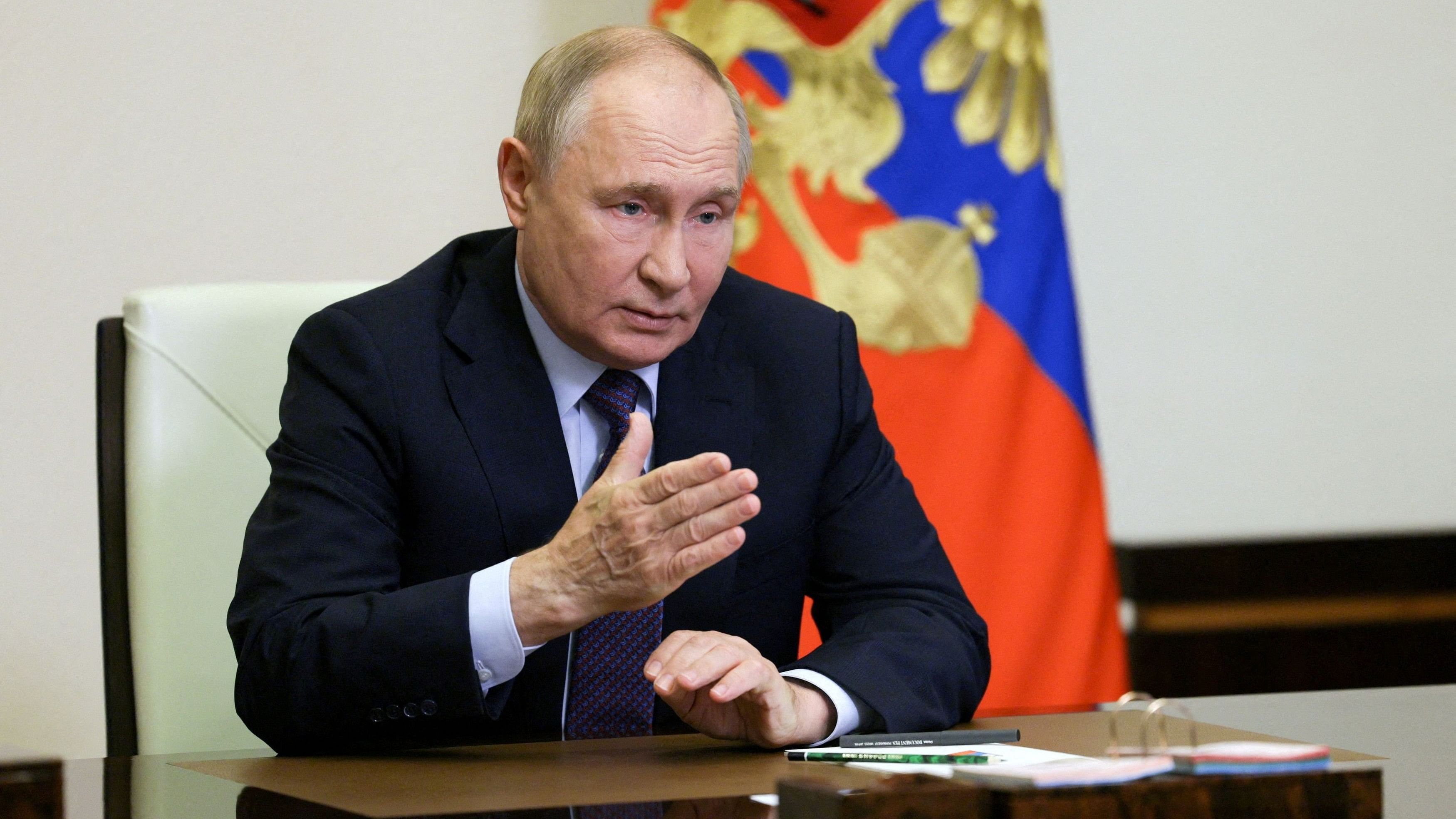
Russian President Vladimir Putin.
Credit: Sputnik/Aleksey Babushkin/Kremlin via REUTERS
Moscow: Russian President Vladimir Putin said on Wednesday that Moscow should consider limiting exports of uranium, titanium and nickel in retaliation for Western sanctions.
Putin's remarks to government ministers prompted a rise in nickel prices and drove shares in uranium mining firms higher.
In televised comments, he said such restrictions could also be introduced for other commodities, and noted that Russia was a major producer of natural gas, diamonds and gold.
But he said that measures did not need to be taken "tomorrow", and must not cause damage to Russia itself.
"Russia is the leader in reserves of a number of strategic raw materials: for natural gas, this is almost 22 per cent of world reserves, for gold - almost 23 per cent, for diamonds - almost 55 per cent," Putin said.
"Please take a look at some of the types of goods that we supply to the world market... Maybe we should think about certain restrictions - uranium, titanium, nickel," he told Prime Minister Mikhail Mishustin.
"We just mustn't do anything to harm ourselves," he added.
Western countries have sharply cut purchases of Russian oil and gas since the start of the war in Ukraine but Russia remains a major supplier of metals to world markets, so a cut or halt to its exports could cause disruption, analysts said.
Three-month nickel on the London Metal Exchange (LME) surged 2.6 per cent to $16,145 per metric ton shortly after Putin's remarks.
Russia is home to Nornickel < GMKN.MM>, the world's biggest refined nickel producer. It is a major nickel supplier to China and Europe. The company did not immediately respond to a request for comment.
More than a fifth of the nickel in LME-registered warehouses is of Russian origin, data showed on Tuesday. The metal is used in batteries and in alloys with a wide range of applications including armour plating and turbine blades.
Canadian uranium miners' shares jump
Shares in uranium miners jumped following the news, with Canadian miners NexGen Energy, Cameco and Denison Mines up between 5.2 per cent and 5.4 per cent Russia is the world's fourth largest uranium producer and has about 44 per cent of global uranium enrichment capacity.
In 2023 the US and China topped the list of Russian uranium importers, followed by South Korea, France, Kazakhstan and Germany.
In May, US President Joe Biden signed into law a ban on enriched uranium imports from Russia, a trade worth around $1 billion annually. However, it contained waivers in case of supply concerns that would allow the Department of Energy to maintain normal levels of Russian uranium imports through 2027.
Russia accounted for 27 per cent of the enriched uranium supplied to US commercial nuclear reactors last year.
"It will be really hard to replace, especially in the short term, the next 2-3 years," said Citi analyst Arkady Gevorkyan.
"Western enrichers are only making plans to build additional enrichment capacity, which would require at least three years to be completed. We anticipate that utilities in the US might be able to partially replace it by importing low enriched uranium from China."
Russia is also the world's third largest producer of titanium sponge, which is turned into metal for industrial applications in the aerospace, marine and auto industries, but has low titanium mineral reserves of its own.
Russia's largest titanium sponge maker VSMPO-Avisma, partly owned by sanctioned defence conglomerate Rostec, supplied titanium to both Boeing and Airbus before the Ukraine war.
Canada has placed VSMPO-Avisma under sanctions but has granted Airbus a waiver to allow it to use Russian titanium in its manufacturing.
Boeing stopped buying titanium from Russia less than two weeks after the start of the war with Ukraine in 2022.
Russian customs data shows that United States still buys Russian titanium, but the biggest purchasers are France, China and Germany.